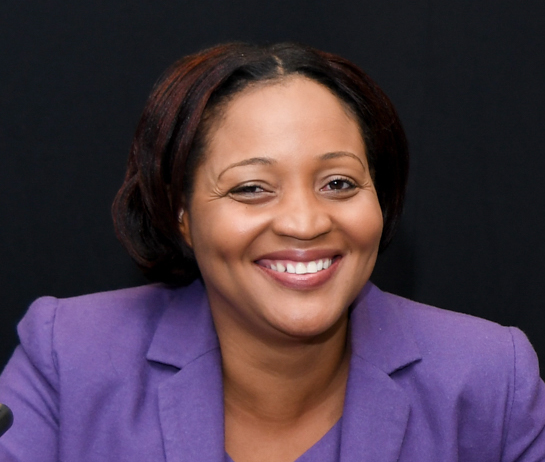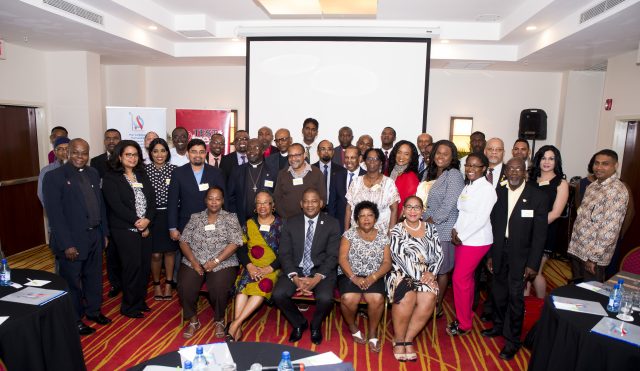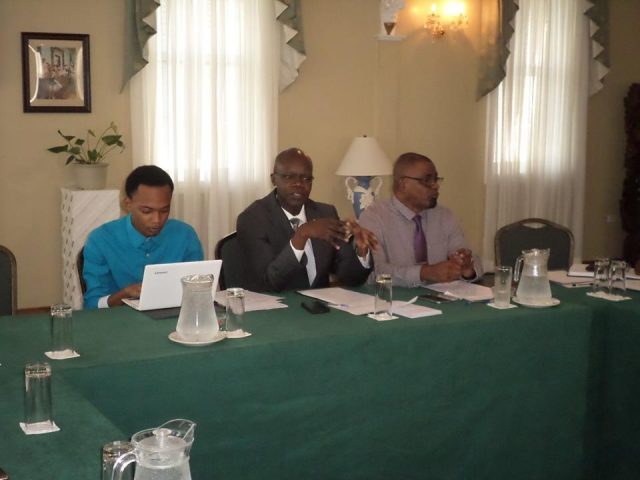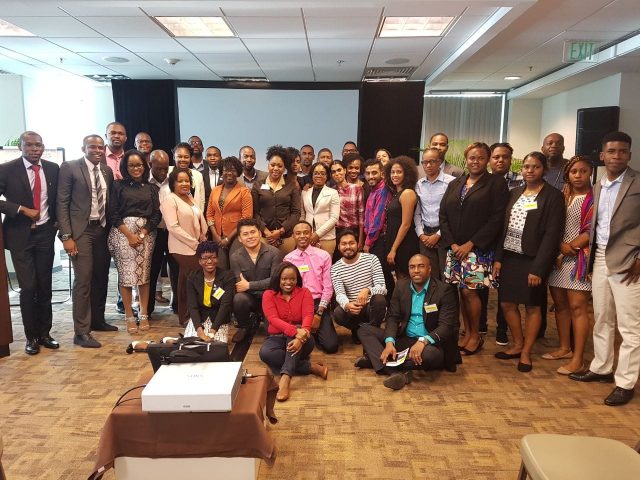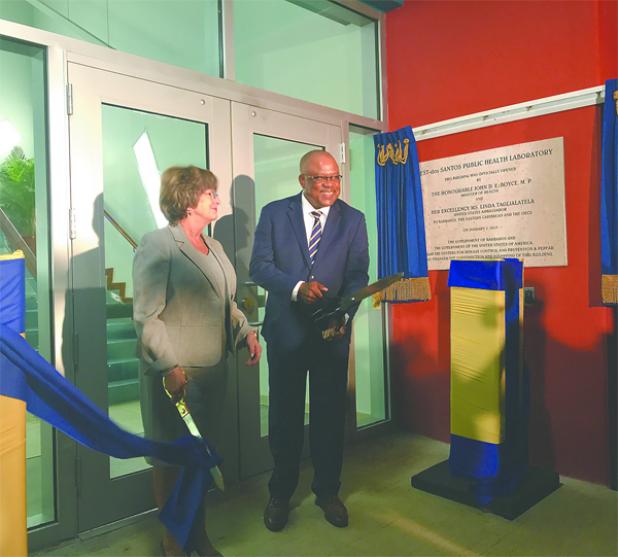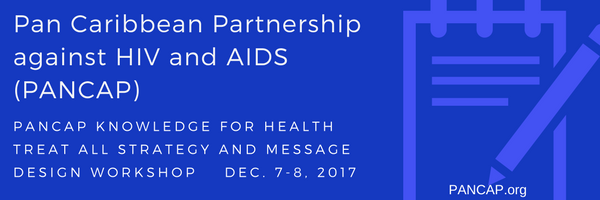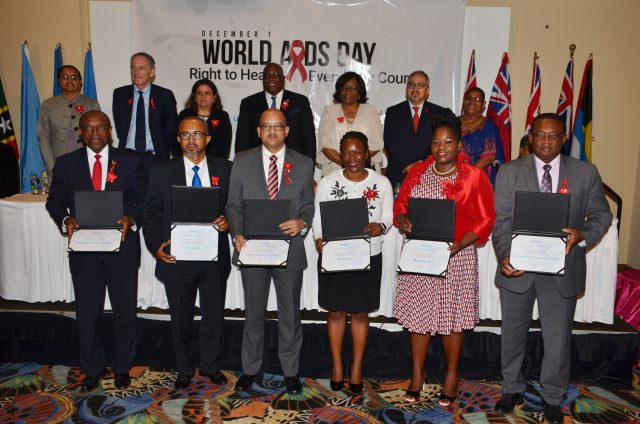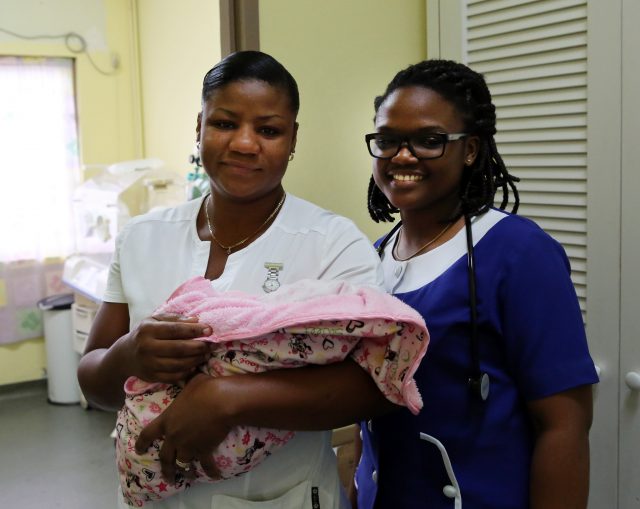Tuesday, March 13, 2018 (PANCAP Coordinating Unit, CARICOM Secretariat): The Pan-Caribbean Partnership against HIV and AIDS (PANCAP), the mechanism that provides a structured and unified approach to the Caribbean’s response to the HIV epidemic, commenced the Sixth Meeting of National AIDS Programme (NAP) Managers and Key Partners in the Republic of Trinidad and Tobago from 12–14 March 2018.
Delivering the Feature Address, Honourable Terrence Deyalsingh, Minister of Health, Republic of Trinidad and Tobago highlighted that it has been more than 34 years since the first reported HIV and AIDS case in Trinidad and Tobago and the Caribbean and over 17 years since highly active antiretroviral treatment (HAART) became a reality.
However, he emphasized the need to focus on the sustainability of the response. “From the outset of the HIV epidemic in the Caribbean, there have been varied efforts to ensure that our regional and local communities achieved sustainability in our response to HIV”, stated Minister Deyalsingh, “Sustainable HIV programmes are characterized by the ability of a national government and regional partners to increasingly assume full strategic and financial responsibility for their HIV and AIDS response over the long-term”.
The Minister explained that this requires the development and strengthening of policies, infrastructure, skills, processes, human and financial resources to ensure that the response can survive, adapt and scale-up. He highlighted that financing is key to mounting a sustainable response and referred to the approaching 2020 deadline for the “90-90-90 Fast-Track Target”. Further, he explained that “the region finds itself in a global environment with complex development priorities that pose challenges to national budgets and affect bilateral cooperation. The region is expected to experience reduced technical and financial inflows and must collectively mobilize domestic resources especially, for the support of prevention and the elimination of HIV-related stigma and discrimination among key and vulnerable populations, as complimentary external financing dwindles”.
Minister warned that while the desire to achieve sustainable responses is widespread, little formal research has been undertaken to assess the resilience of Caribbean territories, in the face of the withdrawal of external support.
“As a region, we need to urgently heighten the research and the debate on the sustainability of the HIV response,” stated the Minister.
Addressing the participants, Chair of the Regional Coordinating Mechanism (RCM), Global Fund Project and Minister of Education, Guyana, Honourable Nicolette Henry advocated for more country ownership of the HIV response.
“To achieve the objectives of the Caribbean Regional Strategic Framework on HIV and AIDS there is still need to strengthen country ownership of the response and shared responsibility to strategically align efforts to end HIV as a public health problem in the Caribbean”, stated Minister Henry, “As a region we are still challenged with late diagnosis, particularly for men. Yet there is much to celebrate. People are living much longer with HIV, many more patients are on ART and there are greater methods and practices for fast-tracking prevention, operational financing mechanisms, and authority and responsibility of National AIDS Programmes. These are all essential requirements for closing the gap and shepherding an AIDS-free generation”.
The Minister’s sentiments on low diagnosis figures for men were echoed in remarks by Dr Cesar Nuñez, UNAIDS Director, Latin America and Caribbean Regional Support Team, who stated “the region as a whole is lagging behind on the HIV testing and viral suppression targets. One of three people (36%) living with HIV in the Caribbean is not aware of their HIV status, and late diagnosis is a challenge in several countries, particularly for men. In 2016, one-third of those on treatment were not virally suppressed (33%). This is what we must seek to understand and address. Why are most systems able to initiate treatment once people are diagnosed, but not to retain them in care and achieve the gold standard of viral suppression?”
Ms Annelise Hirschmann, Regional Manager for Latin America and the Caribbean, The Global Fund noted the success of the region’s response to HIV. She reminded the participants of their critical role in defining a path for the challenges ahead and emphasized the need to use treatment and key population cascades to make decisions on investing domestic and donor funding. Ms Hirschmann advocated that data should be used to shape decisions on the response more effectively. “We know that the region does not have huge increases in domestic financing for health, but are we effectively utilizing what is available?” stated Ms Hirschmann. She also urged participants to continue to plan for the sustainability of the HIV response in light of reduced donor funding.
Dr Edwin Bolastig, PAHO/WHO Representative (ag.), Republic of Trinidad and Tobago reiterated PAHO/WHO’s commitment to all partners involved in the HIV response towards achieving the 90-90-90 Targets by 2030. Dr Bolastig stated that country ownership of the HIV response aligned with the Regional Strategic objectives are indeed essential for the response. He also noted that while more countries have been validated for the Elimination of Mother-to-Child Transfer of HIV and Syphilis (EMTCT), there is still work to be done. In light of this, he recognized PANCAP’s consistent efforts to bring together regional minds for the collective thought process towards building consensus, creating synergies and generating collective action towards ending HIV. He also highlighted the synergy between PAHO/WHO and PANCAP in advocating for universal health coverage and ensuring that no one is denied health care because of age, sexual orientation, occupation, religious beliefs, etc.
Mr Ivan Cruickshank, Administrative and Finance Manager, Caribbean Vulnerable Communities Coalition (CVC) highlighted the critical need for data necessary to achieve the 90-90-90 Targets. He also advocated for full involvement of civil society representatives at all levels in the implementation of HIV programmes and the region’s overall response.
Dr Nikkiah Forbes, Director, National HIV/AIDS and Infectious Diseases Programme, Ministry of Health, The Bahamas continued the theme of the meeting, calling for more interest by governments in the sustainability of the response. She stated “I make a respectful but urgent plea to our governments to commit to, as well as finance their National and Regional AIDS response”.
Dr Forbes acknowledged the financial costs of such a commitment but implored governments to also consider the costs associated with inaction. “I also want you to remember that the colour of AIDS awareness is blood red, for its connection to blood and passion – not just red for anger in the face of injustice”, stated Dr Forbes, “The AIDS response must prevail beyond party colours, such as in The Bahamas where fortunately HIV has been a matter that our successive government administrations have consistently supported”.
Director of PANCAP and Chair of the opening ceremony, Mr Dereck Springer highlighted that the meeting provided an opportunity to reflect on the Region’s progress towards achieving the 90-90-90 Targets, to identify gaps in the region’s response and discuss strategies for filling the gaps. He noted that the meeting was being convened at a time of declining resources therefore the region must ensure greater efficiencies and effectiveness of HIV programmes.
The three-day forum will culminate on Wednesday, 14 March as National AIDS Programme Managers, Chief Medical Officers, Permanent Secretaries, Development, Regional and Implementing Partners, including civil society organizations that work with people living with HIV and key population groups (including youth), are expected to reach an agreement on approaches for integration as a key strategy for sustainability of the HIV response.
-ENDS –
What is PANCAP?
PANCAP is a Caribbean regional partnership of governments, regional civil society organisations, regional institutions and organisations, bilateral and multilateral agencies and contributing donor partners which was established on 14 February 2001. PANCAP provides a structured and unified approach to the Caribbean’s response to the HIV epidemic, coordinates the response through the Caribbean Regional Strategic Framework on HIV and AIDS to maximise efficient use of resources and increase impact, mobilises resources and build capacity of partners.
What are the Joint United Nations Programme on HIV and AIDS (UNAIDS) 90-90-90 Targets?
- By 2020, 90% of all people living with HIV will know their HIV status.
- By 2020, 90% of all people with diagnosed HIV infection will receive sustained antiretroviral therapy.
- By 2020, 90% of all people receiving antiretroviral therapy will have viral suppression.
Background to the National AIDS Programme Managers and Key Partners Meeting
The Caribbean Regional Strategic Framework (CRSF) 2014-2018 articulates the vision and collective priorities of Caribbean states through their membership in the Pan Caribbean Partnership against HIV and AIDS (PANCAP). The core premise is that stemming the HIV epidemic in the Caribbean rests on the commitment, capacity and leadership of national authorities and effective response. The primary goal of regional collaborative efforts is to support country responses by addressing common challenges in the areas of evidence based policy formulation, and innovative responses to addressing legislative gaps, resource mobilisation, coordination and technical assistance., An effective regional response, guided by the CRSF 2014-2018,therefore requires that the links and interfaces between country programmes and regional support programmes be defined and agreed to by country partners. This is critical for strengthening country ownership of the PANCAP response and a shared responsibility to strategically align efforts to end HIV as a public health problem in the Caribbean. .
The NAP (National AIDS Program) Managers and Key Partners Meeting provides an opportunity for joint decision-making in setting programmatic priorities and identifying partner contributions in order to strategically align efforts in the fight against HIV. The Meeting Agenda is intended to allow for in-depth analysis and discussion on the relevant aspects of the UN Post 2015 Agenda, and the overall advancements of the Caribbean Region in implementing new initiatives for HIV. It is within this context that opportunities and challenges for the Region and individual countries to expand the national responses will be discussed. PANCAP acknowledges the need for greater attention to inter- country linkages and greater collaboration with regional partners. This will serve to maximise synergies, and provide a mechanism for making regional public goods available to national programmes to enhance their delivery and impact.
Contact:
Timothy Austin
Communications Specialist
PANCAP Coordinating Unit
CARICOM Secretariat
Turkeyen, Greater Georgetown, Guyana
Email: taustin.consultant@caricom.org
Tel: (592) 222-0001-75, Ext. 3409 | Visit www.PANCAP.org


